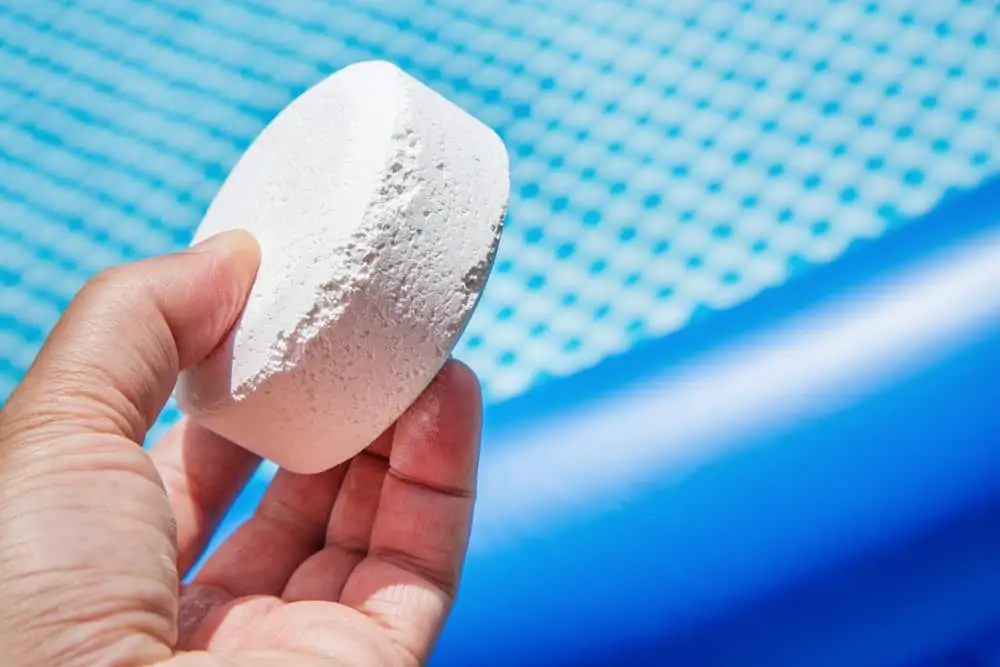Maintaining a sparkling clean and healthy swimming pool requires careful attention, and chlorine plays a vital role in keeping those pesky bacteria at bay. But how often should you add chlorine to your pool? This comprehensive guide will walk you through everything you need to know about pool chlorine levels, testing, and best practices for a safe and enjoyable swimming experience.
Understanding How Chlorine Works
Before we dive into how often to add chlorine, let’s understand how this chemical works its magic. When you add chlorine to your pool (typically in the form of tablets, granules, or liquid), it reacts with the water to form hypochlorous acid (HOCl). This powerful compound is the real bacteria-fighter, destroying the cell walls of harmful microorganisms and keeping your pool water sanitized.
Too Much of a Good Thing?
While chlorine is essential for a clean pool, too much can be a problem. Excessive chlorine levels can cause skin and eye irritation, unpleasant odors, and even damage to pool equipment. It’s crucial to maintain the right balance.
The Right Level of Pool Chemicals
The ideal chlorine level for your pool is typically between 3 and 5 parts per million (ppm). To accurately measure chlorine levels, use pool test strips or a liquid test kit, which you can find at any pool supply store. These tests also help you monitor other important pool chemical levels like pH, alkalinity, and calcium hardness.
Under normal conditions, you should add a chlorine tablet every 3-7 days. However, several factors can influence how often you need to add chlorine:
- Frequency of use: A heavily used pool will require more frequent chlorination.
- Sunlight: Sunlight breaks down chlorine, so you’ll need to add it more often on sunny days.
- Water temperature: Warmer water requires more chlorine.
- Rainfall: Heavy rain can dilute chlorine levels.
Types of Chlorine for Your Pool
- Chlorine Tablets: These are the most popular choice due to their ease of use and slow-dissolving nature, providing a consistent chlorine level.
- Chlorine Granules: Granules dissolve quickly and are useful for a quick boost of chlorine, but they require more frequent application.
- Liquid Chlorine: This is a less common option for residential pools due to its potency and shorter shelf life.
Troubleshooting Chlorine Problems
- Cloudy water: Cloudy water can be a sign of low chlorine, imbalanced pH, or other issues.
- Algae growth: Algae blooms indicate a need for increased chlorination and possibly a “shock treatment” to quickly raise chlorine levels.
If you encounter these or other problems, it’s best to consult with a pool professional.
Choosing Between Chlorine and Saltwater Systems
While this post focuses on traditional chlorine, it’s worth mentioning saltwater chlorination systems. These systems use a salt chlorinator to generate chlorine from salt, reducing the need for manual chlorine addition. While saltwater pools still require some maintenance, they can offer a more convenient and gentler swimming experience.
Get Expert Help with Your Pool Maintenance
Maintaining a perfect pool can be a challenge. If you’re looking for expert advice or assistance with your pool care, contact Pools by Design. We offer a range of services to keep your pool sparkling and ready for enjoyment.
Don’t let pool maintenance stress you out! Contact Pools by Design today for a free consultation and let our experts help you create the pool of your dreams.


